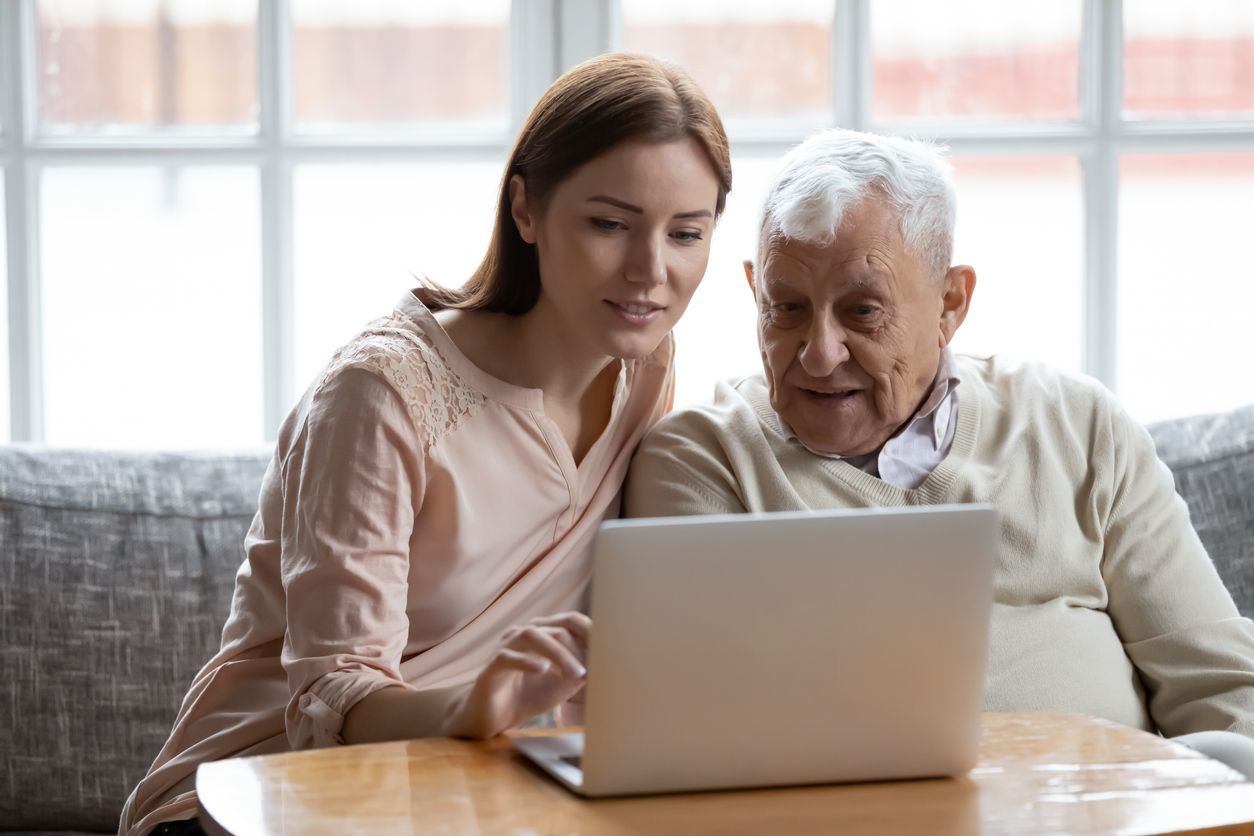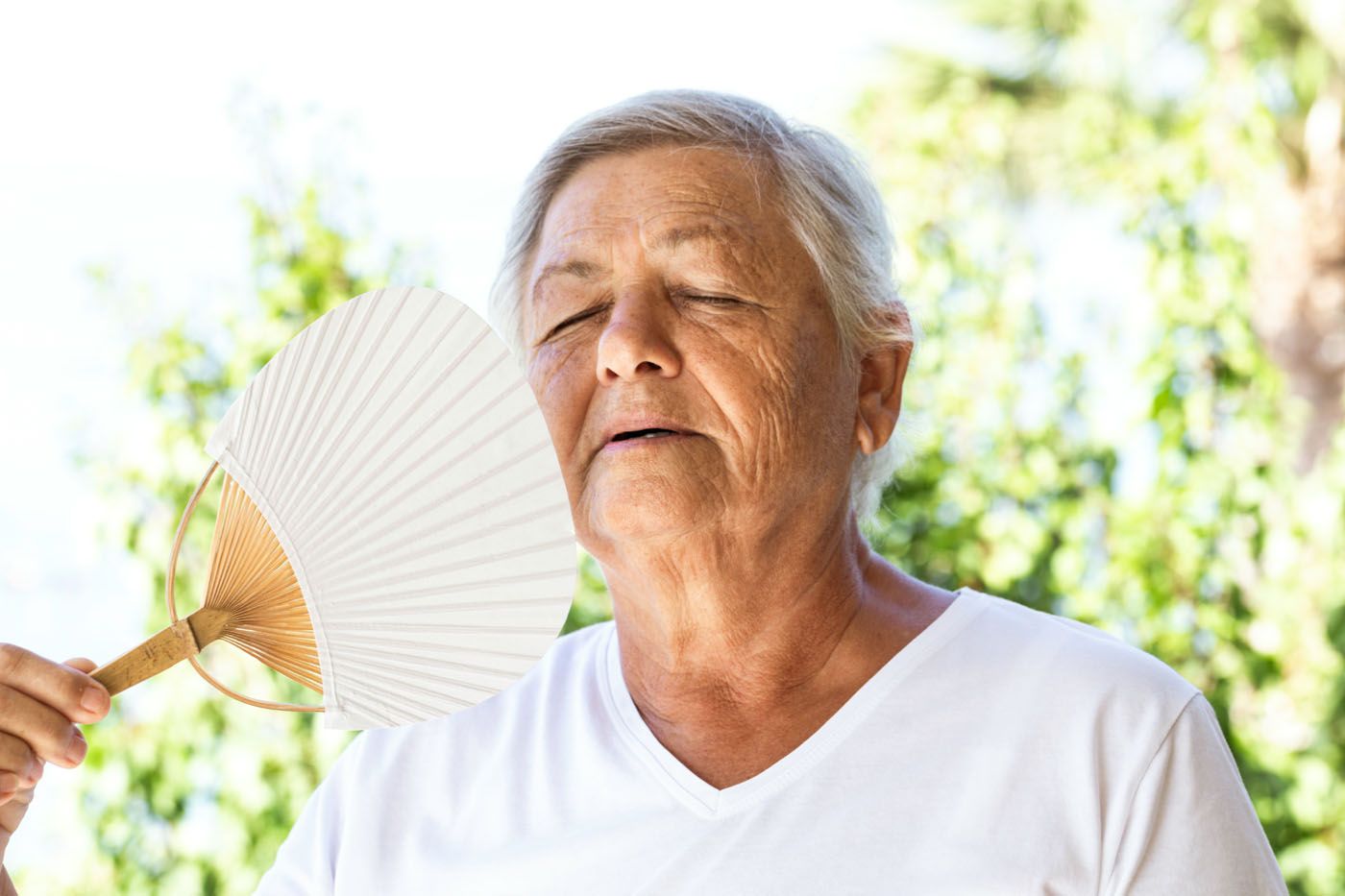Ascend Health Blog

June 30, 2025
A few months ago, beloved actor Gene Hackman and his wife, Betsy Arakawa, were found deceased in their New Mexico home. Investigators believe Arakawa passed away first—possibly up to a week before Hackman. Shortly before her death, she had reached out to a local clinic . Later, Hackman’s pacemaker data helped confirm the timeline of his own passing. The medical examiner determined that Arakawa died from hantavirus pulmonary syndrome , a rare and dangerous respiratory illness transmitted by rodents. Hackman died from advanced heart disease , with Alzheimer’s disease contributing to his decline. Experts suggest that his cognitive impairment likely prevented him from recognizing Arakawa’s death—or, if he did realize it, he may have experienced confusion, heartbreak, and helplessness before ultimately passing away himself. We may consider Gene Hackman’s last role to be his final lesson, a wake-up call for caregivers and families. It’s a profoundly tragic story—one that reflects a reality many families quietly face. As our loved ones age, especially when one becomes the caregiver, a sudden health crisis can leave the other stranded in a dangerous situation. What Can We Learn? This heartbreaking story offers more than grief—it offers perspective. It’s a reminder to be proactive, observant, and involved in the lives of aging loved ones. Here’s ways we can help. 1. Know the Conditions Affecting Your Loved Ones In Hackman’s case, the central health challenges were heart disease and Alzheimer’s. Recognizing the signs of heart trouble—chest pain, fatigue, breathlessness—and understanding how dementia can mask or confuse those symptoms is critical. 2. Caregivers Need Care Too When the caregiver goes down, the one who relies on them is suddenly exposed. Arakawa’s sudden illness likely left Hackman alone, disoriented, and unable to seek help. Caregivers often suffer in silence, pushing past their limits. Regular check-ins and support for them are just as essential. 3. A Simple Visit Can Save a Life A timely visit from a friend or relative might have changed the outcome. Subtle signs—rodent activity, spoiled food, confusion, hygiene issues—could have triggered help before it was too late. Don’t underestimate the power of simply showing up. What to Watch For: A Family Checklist If you have aging parents, relatives, or friends, here are some key areas to keep an eye on: Physical Health • Sudden weight loss or gain • Bruises, burns, or signs of falls • Unkempt appearance or body odor • Difficulty walking or standing Cognitive & Emotional Well-being • Memory loss or repeating questions • Depression, anxiety, or social withdrawal • Unsafe behavior such as leaving appliances on • Unusual mail or phone activity Home Conditions • Spoiled food, pest presence, or clutter • Safety hazards (dim lighting, loose rugs) • Appliances or plumbing not working Nutrition & Kitchen Safety • Expired food or low food supply • Dirty or neglected kitchen tools • Avoiding cooking altogether Medication Compliance • Confused about medications or missed doses • Expired or improperly labeled prescriptions Social Interaction • Isolation or reluctance to leave the house • Loss of interest in hobbies or community involvement Financial Awareness • Unpaid bills or unopened mail • Signs of financial exploitation or scams Tech & Communication • Can they use a phone in an emergency? • Are they responsive to calls or messages? What To Do If You Notice a Problem If you see red flags, don’t panic—but don’t ignore them either. Start with an honest, caring conversation. Explain that your concern comes from love, not judgment. Then, consider next steps: • Schedule a check-up with their doctor • Bring in help, even part-time support • Assess whether the home needs modifications • Explore new living arrangements if necessary Whether it’s weekly dinners, video chats, or simple texts—stay involved–consistent contact keeps you in tune with your loved ones’ needs and builds a safety net they may not even know they need. Final Thought If Gene Hackman’s last role is to serve as a final lesson, it’s a wake-up call for caregivers and families. Gene Hackman’s final days are a sobering reminder: Don’t wait until something goes wrong. Aging can be beautiful—but it also comes with risk, especially in solitude. Let this story motivate you to reconnect, check in, and truly see how your loved ones are doing. Additional Resources: Learn more about Congestive Heart Failure: https://www.ascendhealth.com/caring-for-a-loved-one-with-chf-this-summer https://www.ascendhealth.com/caring-for-a-loved-one-with-chf Learn more about dementia and Alzheimer’s disease: https://www.ascendhealth.com/alzheimers-caregiving-7-signs-its-time-for-extra-support https://www.ascendhealth.com/coping-with-alzheimers-anxiety-and-depression Need a health or safety assessment for a loved one? Contact Us or call today.

May 27, 2025
Honoring your dad on Father’s Day after he has passed can be a meaningful and healing experience. Here are ten ways to remember and celebrate him: 1 - Wear or Carry Something of His – A watch, a shirt, a piece of jewelry—something that belonged to him can provide comfort and keep his presence close. 2 - Dedicate a Song or Playlist – Create a playlist of songs that remind you of moments you’ve shared together. 3 - Recreate a moment in time – Recreate a favorite memory (fishing trip, movie night, road trip) 4 - Plan a Dad’s night out - plan an outing to one of his favorite places. It could be a restaurant, a game, or simply a scenic spot. 5 - Plan a Dad’s night in - Invite family and friends over to reminisce and serve a buffet of his favorite foods. 6 - Build Something Meaningful - if you’re good with your hands, build something he would have liked. If you’re not you can always buy something like a bird house and mount it outside in his honor or have a memory bear made from some of his favorite clothes. 7 - Frame Something – buy a store-bought frame or go to a frame shop. Frame a quote, his quote or one that he liked. Or frame a photo of one of his favorite things like a sports team photo, a movie scene image, or a favorite athlete or musician. 8 - Create a Video or Slideshow – Gather old photos and videos, and compile them into a slideshow with music that he loved. 9 - Honor His Legacy – Start an interactive tradition in his honor like a family gathering, storytelling night, or community service. 10 - Plant Forget-me-nots in a favorite place or deliver potted Forget-me-nots to others that miss him too. No matter how you choose to honor your dad, focus on the love you have for him and realize and embrace that he loved you. He wouldn’t want you to cry all day, he would want you to smile and remember the good moments. Read also how to survive your first Father’s day without Dad .

April 28, 2025
Losing a mother is never easy, and Mother’s Day can be an emotional time. Honoring her memory in meaningful ways can bring comfort and keep her spirit alive. Here are ten thoughtful ways to honor the memory of Mom this Mother’s Day: 1. Visit Her Resting Place Spend time at her gravesite or memorial, bringing fresh flowers, her favorite items, or just sitting and reflecting on her love and legacy. 2. Cook Her Favorite Meal Prepare a dish she loved or a recipe she passed down. Sharing a meal in her honor can be a comforting way to feel close to her. 3. Write Her a Letter Express how much you miss her, update her on your life, or share a special memory. Writing can be a powerful way to process emotions and keep her close. 4. Light a Candle in Her Memory Lighting a candle in her honor can be a quiet, reflective way to feel her presence and express your love. 5. Look Through Old Photos & Videos Take time to revisit cherished moments by flipping through photo albums or watching home videos . It’s a beautiful way to celebrate her life and legacy. 6. Do Something She Loved Whether it’s gardening, painting, reading, or taking a walk in nature, engaging in her favorite activities can be a meaningful tribute. 7. Make a Donation in Her Name Give to a charity or cause she cared about . It’s a wonderful way to extend her kindness and make a difference in her honor. 8. Create a Memory Book or Scrapbook Compile photos, letters, and stories into a scrapbook or digital memory book that keeps her spirit alive for future generations. 9. Plant a Tree or Flowers in Her Honor Planting something in her memory can be a lasting tribute, symbolizing growth, love, and the continuation of her legacy. 10. Spend Time with Family & Share Stories Gather with loved ones to reminisce, share stories, and celebrate the love she gave. Keeping her memory alive through storytelling can be healing and uplifting. No matter how you choose to honor your mom, the most important thing is to celebrate the love and impact she had on your life. We hope these 10 ways to honor the memory of Mom this Mother’s Day helps readers celebrate this Mother’s Day. Also read here about surviving the first Mother’s Day without Mom .

February 27, 2025
Our expert care enriches life by controlling symptoms and managing pain, while also caring for the mind and spirit. Hospice often becomes a choice when you or a loved one is seeking relief from frequent emergency room visits or are physically or emotionally tired of challenging treatments that no longer have a positive impact on life expectancy or quality of life. Serious illness affects more than just a loved one. So, our support extends to family caregivers . We become an extra layer of support by sharing our experience and resources to ensure that you and your loved ones feel prepared by knowing what to expect as illness progresses. We also help you feel less overwhelmed by sharing in some of the responsibilities of the day-to-day care of your loved one. We also understand the worry that comes with serious illness. When a loved one is living with a serious illness, a price can’t be put on peace of mind. Here 12 things that are important to understand about hospice. 1 - Hospice is a philosophy of care that treats a person rather than the disease. Hospice is a complete and cohesive program of medical care and emotional/spiritual support to improve the quality of life for patients facing a life-limiting illness. 2 - When treatment is no longer effective or desired, hospice care can be provided for pain relief and symptom control , along with emotional and spiritual support for patients and loved ones. 3 - Hospice care takes a holistic approach focusing on both physical and emotional health. 4 - In most cases, a family member serves as the primary caregiver and helps make decisions for their loved one. 5 - The caregiver works with our team to develop a plan of care to provide treatment, support, and personal care. 6 - Your physician remains in charge of the overall medical care, we become a part of his team. 7 - Hospice isn’t giving up. It’s finding comfort and dignity after you’ve been told nothing more can be done. 8 - You are free to leave a hospice program at any time for any reason without penalty. You can re-enroll in a hospice program any time that you meet the medical eligibility criteria. 9 - Medications and medical interventions are used regularly to control pain and symptoms. 10 - Hospice patients live an average of 29 days longer than those that do not receive hospice care. 11 - Hospice care is provided anywhere your loved one lives, including private residences, assisted living communities, and long-term care facilities. 12 - Our care is covered by Medicare, Medicaid, and most private insurance companies. We understand that choosing to stop curative treatments and begin care and comfort services can be overwhelming. If you have questions like ' is now the right time’ or if you wonder ‘when will the right time be”, you can call and speak to one of our clinical directors. An Ascend nurse or social worker can meet with you and your family members and provide information on all of the services available to you. Once you are ready your physician, our team of nurses, our medical director, and our chaplains, social workers, and aides will be with you and your family on every part of your journey ensuring that your care and comfort are our first priority.

January 2, 2025
Caring for a loved one with COPD can be challenging and knowing when to align help can be challenging as well. Even more difficult is learning when to consider hospice for COPD. It is a progressive condition, and it’s important to ensure a loved one gets the right level of care and comfort. Ultimately the focus shifts from curative treatment to comfort and quality of life. Here are signs to watch for that may help in-home caregivers know when to consider hospice for COPD: 1. Frequent Hospitalizations or Emergency Room Visits • If a loved one has had repeated hospital stays due to COPD flare-ups , especially within the past six months, this could indicate that their condition is progressing despite treatment. 2. Increased Shortness of Breath • When a loved one is struggling with severe breathlessness even at rest, or if daily activities like walking to the bathroom or eating become extremely difficult due to shortness of breath , this could indicate that it’s time to consider hospice for COPD. 3. Dependency on Oxygen • If a loved one requires more frequent or constant oxygen therapy to maintain adequate oxygen levels, this could suggest worsening lung function. A persistent need for oxygen 24/7 is a significant sign of decline. 4. Weight Loss and Muscle Wasting • Significant unintentional weight loss, muscle wasting, and general weakness are common in advanced COPD. This often results from the body working harder to breathe and loss of appetite. 5. Frequent Infections • Recurrent respiratory infections , such as pneumonia or bronchitis, can indicate that the lungs are less able to fight off infections and recover fully, which could signal that the disease is progressing. 6. Difficulty Swallowing or Eating • In advanced COPD, a loved one may struggle to eat due to shortness of breath, leading to malnutrition . Difficulty swallowing, coughing when eating, or choking are also concerning signs. 7. Severe Fatigue and Lack of Energy • Exhaustion and the need to rest after minimal activity or even while sitting or lying down is a strong indicator that a loved one’s body is nearing its limits. 8. Chronic Pain or Anxiety • Those coping with end-stage COPD may experience chronic pain due to strained muscles from labored breathing, or anxiety and panic from struggling to breathe. Ascend can help manage these symptoms. 9. Increased Medication Needs • If a loved one’s need for medication (especially rescue inhalers, nebulizers, or corticosteroids ) has increased without significant improvement in symptoms, this is a sign that the illness is advancing. 10. Decline in Mental Awareness or Cognitive Function • Decreased oxygen levels can affect brain function, leading to confusion, forgetfulness, or difficulty concentrating. 11. Loss of Independence • Needing help with basic activities of daily living, such as bathing, dressing, or toileting, is a sign that their condition is deteriorating, and they may benefit from hospice care . 12. Doctor’s Recommendation • If a loved one’s physician has discussed a limited life expectancy or suggested that medical interventions are no longer effective in improving quality of life, it may be time to consider hospice . In-home caregivers should communicate these signs with the loved one’s healthcare team to assess if hospice care is appropriate . The goal of hospice care is to provide comfort, manage symptoms, and offer emotional and spiritual support for both your loved one and the family during this stage of illness. How can Ascend help in-home caregivers care for a loved one with COPD? Ascend provides a valuable support system for in-home caregivers who are caring for a loved one with late-stage COPD. Our services are designed to enhance the quality of life and offer both practical and emotional support. Here’s how Ascend helps caregivers care for their loved ones with COPD: Symptom Management and Medical Care • Pain and symptom relief: Our teams are experts at managing the symptoms of COPD, which can include breathlessness, coughing, anxiety, and fatigue. They provide medications, oxygen therapy, and other treatments to help ease discomfort. • 24/7 medical support: Our teams provide around-the-clock access to nurses and medical staff, so caregivers don’t have to manage sudden crises or escalating symptoms alone. This includes home visits or phone support for urgent concerns. • Palliative care focus : The goal is comfort, not curative treatment. Seasoned professionals adjust medications to control symptoms without causing unnecessary side effects. Caregiver Training and Education • Proper care techniques: Our staff will teach you how to manage your loved one’s symptoms, like positioning to help with breathing or how to administer medications and oxygen. • Emergency planning: Caregivers are taught how to recognize signs of distress or complications, such as worsening shortness of breath or anxiety, and how to respond appropriately. Emotional and Psychological Support • Counseling services: Ascend offers emotional support for both your loved one and the family. Coping with COPD’s progression can be stressful, and having professional counseling can help in-home caregivers cope with the emotional toll. • Respite care: Ascend can arrange temporary relief for caregivers, to enable you to take a break while the our team temporarily steps in to care for your loved one. Practical Assistance • In-home nursing visits: Nurses or aides may visit to assist with tasks like bathing, grooming, or administering medications, easing the physical burden on caregivers. • Medical equipment and supplies: Ascend provides necessary equipment, such as oxygen machines, hospital beds, and medications, making it easier to care for your loved one at home. End-of-Life Planning and Bereavement Support • Guidance on what to expect: Ascend prepares caregivers for the physical and emotional changes that come as COPD progresses and provides support through the most difficult moments. • Bereavement care: Ascend offers grief counseling and support services when a loved one completes their final journey. Ascend enables caregivers to focus more on spending quality time with a loved one rather than being completely consumed by being a caregiver. In-home caregivers can return to their familial role, while Ascend ensures the loved one remains comfortable and supported. Need to know more about COPD? What aggravates COPD? Caring for a loved one with COPD?

December 2, 2024
Losing a loved one is painful and can cast a cloud over everything. Grieving during the holidays can be especially difficult because the season often brings expectations of joy and celebration, which may feel out of reach when you’re mourning. Remember that there is no ‘right way’ to grieve, it’s different for each of us. Here are some suggestions that might help you cope with grief at the holidays. 1. Acknowledge your feelings - Allow yourself to feel what is really there — whether it’s sadness, anger, guilt, or even moments of joy. Grief is unpredictable, and it’s okay to feel a mix of emotions. - Don’t pressure yourself to feel festive just because it’s the holidays. 2. Set boundaries and manage expectations - It’s okay to say no to events or traditions that feel overwhelming right now. - Be honest with yourself and others about what you can handle. Some people find comfort in keeping old traditions, while others may prefer to create new ones or skip them entirely this year. 3. Find ways to honor the memory of your loved one - Light a candle, share stories, or set a place at the table in their honor. You could also donate to a charity in their name or participate in an activity they enjoyed. - Rituals like these can help keep their memory close during a time that might otherwise feel empty without them. 4. Reach out for support - Don’t isolate yourself if you need company. Lean on family, friends, or support groups, and don’t hesitate to talk about your loved one. People around you may not know how to approach the subject, so letting them know what you need can help. - Professional help from a therapist or grief counselor can be helpful if you're struggling. 5. Be gentle with yourself - Grief can take a lot out of you, both emotionally and physically. Take care of your basic needs: rest, eat, and do things that bring you comfort or peace, even if they're small. - Give yourself permission to grieve and understand that healing is different for everyone. It doesn’t follow a set timeline. 6. Take care of yourself - Engage in activities that nurture your well-being, whether it’s journaling, taking walks, or practicing mindfulness. Taking moments for yourself is not selfish, it’s necessary for healing. 7. Embrace flexibility in traditions - Some people find that adjusting holiday traditions can help. You might want to simplify celebrations, go to a new place, or make the holiday quieter this year. Allow yourself to redefine what the holidays look like during your grief. 8. Plan for hard moments - Certain moments like opening gifts, seeing certain decorations, or hearing holiday songs can bring a fresh wave of grief. Prepare for these triggers by thinking through what might help you cope when they arise—whether that’s stepping away, leaning on a loved one, or having something to distract you. 9. Focus on what you can control - The holidays can be filled with reminders of your loss, but focusing on small, manageable tasks can help you regain a sense of control. This could be something as simple as planning your day, choosing how you want to spend your time, or deciding who you want to be around. 10. Allow yourself moments of joy - It’s okay to smile, laugh, or find comfort in moments during the holidays, even if you’re grieving. Allow yourself to experience those small joys without guilt—they don’t take away from the love you had for the person who is gone. Coping with grief at the holidays is incredibly personal, and there’s no “right” way to do it. If you're open to it, talking about your loved one or sharing memories can sometimes help keep their spirit alive in the holiday season. Above all, give yourself the grace and space to feel whatever comes naturally.

October 29, 2024
In Observation of National Care at Home Month, and National Family Caregivers Month, we’re centering on supporting family caregivers. We truly are, “Stronger Together.” Caring for a loved one can be challenging. It’s easy to become so focused on their needs – on being the best caregiver that we can be, that we forget to take care of ourselves. We often focus so intently on giving them the care that they deserve that we neglect our own well-being. Many home caregivers never pause to realize that being the best caregiver we can be requires us to be at our best. We have to take care of ourselves to do that. Here are a few tips to help caregivers stay at the top of their game. We call it Caring for Caregivers 1. Acknowledge Your Needs Recognize that caregiving is challenging and demanding. It’s okay to admit that you need help. Prioritizing self-care will enable you to stay at your best. 2. Set Boundaries Set clear, realistic boundaries around caregiving tasks. Know when to say no, and don’t take on more than you can handle. 3. Take Regular Breaks Schedule time for yourself, even if it’s just a few minutes of quiet time each day. Take breaks to recharge both mentally and physically. 4. Ask for and Accept Help Don’t hesitate to ask family members, friends, or professional services for help. Whether it’s help with caregiving duties or emotional support, allow others to contribute. 5. Seek Professional Support Therapy or support groups for caregivers can be an outlet to express your emotions and find advice or understanding from people in similar situations. 6. Stay Socially Connected Maintain connections with friends and engage in social activities. Isolation can contribute to stress and burnout, so stay in touch with your social network. 7. Practice Stress Management Engage in activities that help you relax, like meditation, yoga, or deep breathing exercises. Any hobby that you enjoy, or even journaling can provide emotional relief. 8. Prioritize Physical Health Don’t neglect your physical health. Exercise regularly, eat nutritious meals, get enough sleep, and go to the doctor when you need to. 9. Educate Yourself Learn about your loved one’s condition so you can better manage it without overwhelming yourself. Understanding an illness can reduce stress and make caregiving more manageable. 10. Utilize Respite Care Find a way to gain respite care; it can be friends, family or professional services. This allows you time to rest, travel, or attend to your own needs without worrying. 11. Create a Caregiving Plan Develop a plan for managing caregiving responsibilities. A schedule or checklist can help you stay organized and prevent feelings of being overwhelmed. 12. Focus on Positives While caregiving can be stressful, try to find moments of joy or satisfaction. Focusing on the positive aspects of your relationship with the person you’re caring for can help keep burnout at bay. Don’t forget to enjoy a few moments as frequently as possible. Feel the sun on your shoulders, appreciate the flowers or songbirds. Have a simple chat with your loved one – recount pleasant memories, laugh together about funny things that happened one day. By taking care of ourselves, we can better care for our loved ones while preserving our own health and well-being.

August 29, 2024
End of life decisions are difficult for both patients and loved ones. Many people avoid the discussion altogether, however hospice can provide peace and relief during the final stage of life, allowing patients and loved ones to enjoy their time together as comfortably as possible. Unfortunately, there’s a lot of inaccurate information out there and many people believe things that just aren’t true. We hope readers will find this informative and comforting. Many people do not realize that alleviating fear and providing comfort are enormous benefits to a loved one; it may be the biggest thing you can ever do for them. Hospice care focuses on your loved one; it’s real care that concentrates on enabling them to live life as fully as they can while they’re coping with their illness. Let us address the common myths of hospice. Here are a few misperceptions that we hear regularly. Myth: Hospice care is only for people with cancer. Truth: Hospice is offered to patients with any end stage cancer, pulmonary , cardiac, or renal disease , end stage neurological disorders , HIV, and more. Typically, hospice is referred when a patient has chosen to focus on quality of life vs. continuing to undergo aggressive treatments for a disease no longer likely to be cured. Myth: Hospice care is only for elderly people. Truth: Hospice is available to anyone facing a life-limiting illness regardless of age or disease. Myth: Hospice is only for the last weeks of life. Truth: Hospice care is intended for patients who are expected to live six months or less if the illness runs its natural course . Patients can receive hospice care for months, not just the final weeks, and they can be recertified for additional six-month periods. Myth: Choosing to receive hospice care means you are giving up on life. Truth: Hospice does not mean giving up on life or giving up hope. It simply means you are prioritizing the patient’s wishes and comfort for whatever time they have left. It focuses on maximizing quality of life and enabling them to live as fully as possible. Myth: Hospice hastens death. Truth: Hospice care neither hastens nor postpones death. It provides comfort and support by managing symptoms and ensuring their comfort and dignity. People that do receive hospice care tend to live longer than those that do not. Myth: Hospice is a place. Truth: Hospice is provided wherever the patient feels the most comfortable. This is usually at home but can also be wherever the patient calls home – a nursing facility, an assisted living home, or a retirement community. Myth: You have to give up your own doctor when going into Hospice care. Truth: Ascend allows patients to continue seeing their regular doctor while providing an extra layer of support through nurses, volunteers, and social workers. Myth: Hospice is only beneficial to the patient. Truth: While hospice provides nurses and doctors that focus on keeping the patient pain and symptom free, hospice also reduces stress and anxiety for in-home caregivers. Families are more confident with our logistical help, emotional support and instruction on how to give medications properly. Knowing what to expect as an illness progresses and having advice available 24/7 often prevents episodes of panic and unnecessary hospital readmissions. Our teams also help families for a year after a loved one passes by providing bereavement and grief counseling. Myth: Hospice care is expensive and not covered by insurance. Truth: All of Ascend’s services are paid for by Medicare , Medicaid and most private insurances. We provide comprehensive services, including medications, medical equipment, and support, with minimal out-of-pocket costs for the patient and family. Myth: Once you choose hospice, you can't go back to curative treatment. Truth: Patients can postpone hospice care at any time if they wish to pursue curative treatments again or if their condition improves. They can also reinstate hospice care if they meet the eligibility criteria later. Myth: Hospice care and palliative care are the same thing. Truth: While hospice allows patients to return to the highest quality of life during a serious illness, our palliative care services bring an extra layer of care and support and are provided consecutively with curative treatment. We focus on the relief of symptoms and stress to help the patient focus on comfort and quality of life. Ascend hopes to bring light to all the advantages that hospice offers by correcting some common myths of hospice. Ultimately, hospice care is a unique program that provides physical, emotional, and spiritual care, helping patients get back to who and what they love. For more information, questions, or support, contact the team at Ascend by calling 866.821.1212 or request additional information here .

June 24, 2024
Caring For A Loved One With CHF This Summer As we enjoy our favorite outdoor summer activities, along with summer, comes the heat. It’s a time when those of us coping with cardiac issues such as CHF, or congestive heart failure , need to be extra careful. Studies show that seasonal changes influence nearly every type of cardiovascular disease.[1] Experts suggest that understanding and anticipating how that might affect cardiac conditions can help us avoid the risk of complications.[2] If you are caring for a loved one with CHF this summer, please read on. CHF has proven to be sensitive to increases in temperature and activity, so this is a time to be vigilant. Healthcare professionals know that being observant of weather changes may help improve treatment for patients coping with cardiac disease by alerting their patients to take preventive measures to avoid any exacerbation of symptoms.[2] If that works for your doctor, it’s going to work of you. If you are wondering how summer activities might increase CHF symptoms , here are a few things to keep in mind. Be observant. Summer and can elevate the risk of cardiac complications. 1 - Delayed Recognition of Symptoms: During warmer months, we may attribute our symptoms, such as shortness of breath and fatigue, to heat or physical exertion rather than recognizing them as signs of worsening CHF. Delayed recognition and management of symptoms can lead to complications and hospitalizations. 2 - Increased Physical Activity: Warmer weather often encourages people to engage in more outdoor activities such as gardening, walking, or participating in sports. While physical activity is generally beneficial for heart health, individuals with CHF may find it challenging to maintain their exercise tolerance due to reduced cardiac function. Overexertion can lead to symptoms such as shortness of breath, fatigue, and chest pain. 3 - Heat and Humidity: Higher temperatures and humidity levels can put additional strain on the cardiovascular system, especially for people with CHF. Heat causes blood vessels to dilate, leading to increased demand on the heart to maintain adequate circulation. This can exacerbate symptoms such as shortness of breath, fatigue, and swelling in the legs. 4 - Fluid Retention: In warmer weather, people may consume more fluids to stay hydrated, which can worsen fluid retention in those of us with CHF. Excess fluid can accumulate in the lungs (pulmonary edema) or other parts of the body, leading to increased breathing difficulties, swelling, and weight gain. 5 - Changes in Diet: Spring and summer often bring changes in dietary habits, including increased consumption of salty foods, barbecues, and outdoor gatherings where high-sodium snacks and alcoholic beverages are common. Excessive salt and alcohol intake can increase fluid retention and elevate blood pressure, worsening CHF symptoms. 6 - Allergies and Respiratory Issues: Pollen and other spring and summer allergens can trigger respiratory symptoms such as coughing and wheezing, which can worsen breathing difficulties for those of us with CHF. Allergic reactions can also lead to inflammation and increased stress on our cardiovascular systems. 7 - Stress and Anxiety: While spring and summer are often associated with leisure and outdoor activities, they can also bring stressors such as family gatherings, travel, and planning vacations. Stress and anxiety can contribute to elevated blood pressure and heart rate, potentially worsening CHF symptoms. Here are a few tips to help protect our loved ones as the temperatures rise. 1 - Stay Hydrated: Drink plenty of water to stay hydrated, especially during hot weather. Consult your doctor for specific fluid intake recommendations, CHF patients often have fluid restrictions. 2 - Monitor Salt Intake: Excessive salt intake can worsen fluid retention and increase CHF symptoms. Limit salt intake and avoid highly processed foods, which tend to be high in sodium. 3 - Stay Cool: Stay indoors during the hottest parts of the day and use fans or air conditioning to keep cool. If you don't have air conditioning at home, consider visiting air-conditioned public places like shopping malls or libraries. 4 - Wear Lightweight Clothing: Lightweight, loose-fitting clothing made of breathable fabrics like cotton can help us stay comfortable in hot weather. 5 - Monitor Symptoms: Monitor symptoms closely and contact your doctor if symptoms such as shortness of breath, swelling, or fatigue get worse. 6 - Follow Medication Regimens: Ensure prescribed medications are taken in correct dosages and on schedule. Some medications may need to be adjusted during hot weather, so it's essential to follow your doctor’s orders. 7 - Avoid Strenuous Activity: Avoid strenuous activities, especially during the hottest parts of the day. Light exercise, such as walking in the early morning or evening when it's cooler, may be more appropriate. 8 - Keep Medications Cool: Heat can affect how well certain medications work. Store them in a cool, dry place away from direct sunlight. 9 - Plan Ahead: Plan outdoor activities carefully. Schedule them for cooler times of the day and take frequent breaks in the shade. 10 - Seek Medical Attention if Necessary: If symptoms worsen or become severe, seek medical attention immediately. Heat-related illnesses can make CHF symptoms worse and require prompt medical treatment. If you are caring for a loved one with CHF this summer, be vigilant about monitoring symptoms to avoid the potential for complications. Symptoms vary widely and not everyone will experience all of these, but here are a few common symptoms to watch for. 1 - Shortness of breath: This is common for CHF and can worsen in hot weather due to increased stress on the cardiovascular system. If you find yourself becoming shorter of breath than usual, especially during physical activity or in hot environments, it could indicate a risk for CHF complications. 2 - Swelling (edema): Swelling in the feet, ankles, legs, or abdomen can worsen in hot weather. Heat can cause blood vessels to dilate and fluid retention to increase, which can make edema worse with CHF. 3 - Fatigue: Heat can cause fatigue and weakness, which may be more pronounced with CHF due to the heart's decreased ability to pump effectively. If you feel unusually tired or weak, it could be a sign of worsening heart failure. 4 - Increased heart rate: Hot weather can lead to an increased heart rate as the body works harder to cool itself down. People with CHF may notice a more pronounced increase in heart rate due to heat. 5 - Difficulty sleeping: Heat can disrupt sleep patterns, and those with CHF may find it even more challenging to sleep comfortably in hot weather. Difficulty breathing, increased fluid retention, and discomfort due to heat can all contribute to sleep disturbances. 6 - Dizziness or lightheadedness: Dehydration and electrolyte imbalances, which can occur more easily in hot weather, can increase symptoms of dizziness or lightheadedness for those with CHF. 7 - Decreased urine output: Heat can lead to dehydration, which can worsen fluid retention in people with CHF. Monitoring urine output can provide valuable information about fluid balance and hydration status. Remember that providing the best care does not mean you have to do it all. Consider aligning support from family and friends. Accepting support and avoiding caregiver burnout will be vital in your ability to continue providing care and support. Aligning professional help can also be of immense benefit. Ascend Hospice is knowledgeable and experienced in helping families cope with CHF. Ascend works with your physicians to develop individualized plans of care based on your specific medical needs. Patient specific care plans account for where you are in the disease progression and maintain a focus on your goals and wishes. Our expert care and symptom control can help you or your loved one avoid unnecessary hospitalizations and ER visits. We can help you focus on quality of life. 1 - Stewart S., Keates A.K., Redfern A., McMurray J.J.V. Seasonal variations in cardiovascular disease. Nat. Rev. Cardiol. 2017;14:654–664. doi: 10.1038/nrcardio.2017.76. 2 - National library of medicine article PMC9099623

April 24, 2024
We often avoid conversations about hospice, but the one thing we keep hearing from families is, “we wish we had started hospice care sooner.” It’s easy to understand why we hear that. Hospice isn’t for the last few days, it’s for the last months - six months, and can even be recertified for additional periods of time.

